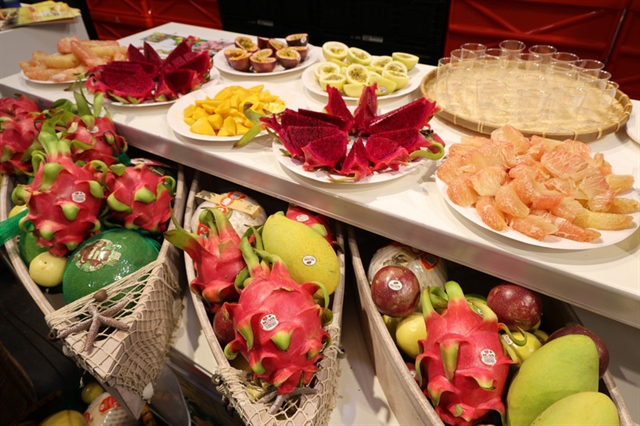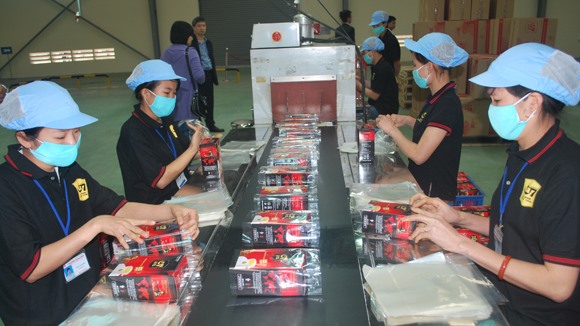 bizhub
bizhub

European consumers cannot recognise brand names of most goods imported from Viet Nam since many businesses are not fully aware of the importance of building trademarks and have not complied with EU standards for exports, Claudio Dordi, technical assistance team leader of the EU-MUTRAP Project, said.
 |
| Workers are packaging coffee in Trung Nguyên coffee factory. — Photo baomoi.com |
CẦN THƠ — European consumers cannot recognise brand names of most goods imported from Việt Nam since many businesses are not fully aware of the importance of building trademarks and have not complied with EU standards for exports, Claudio Dordi, technical assistance team leader of the EU-MUTRAP Project, said.
Most of Việt Nam’s agricultural products sold in the EU market are labelled with Chinese and Japanese brand names since Việt Nam exports raw materials to these countries, Dordi told a trade policy forum organised by the Vietnam Trade Promotion Agency under the Ministry of Industry and Trade and the Centre for Investment and Trade Promotion of Cần Thơ City on Thursday.
According to the expert, up to 99 per cent of coffee products imported into the EU come from Việt Nam, but few consumers know that fact.
Aside from coffee, the country’s cocoa, tea, toys, footwear and apparel are also facing the same situation, he noted, adding that European consumers equate Vietnamese goods with Chinese products, forcing importing countries to raise more quality control barriers towards Vietnamese products.
The expert urged Vietnamese exporters to modernise their production lines and develop strong brand names for their firms.
They also needed to update changes in import policies of partner markets.
Nguyễn Phương Mai, a specialist of the Corporate Social Responsibility (CSR) project of the UN Industrial Development Organisation, said enterprises should affirm their reputation by implementing the CSR Pyramid, which includes economic, legal, ethical and philanthropic domains.
The top of this pyramid is the philanthropic domain, indicating that benefits produced by businesses go beyond the society’s expectations.
Alain Chevalier, senior technical advisor of the programme “Decentralised Trade Support Services for Strengthening the International Competitiveness of Vietnamese Small and Medium-sized Enterprises,” introduced the Standards Map of the International Trade Centre.
The software helps exporters learn about the main features, requirements and export-related policies.
Accordingly, Vietnamese firms exporting goods to the EU should understand that local consumers are ready to pay more for goods meeting standards, in an environmentally friendly manner and with social responsibility, he added. — VNS




